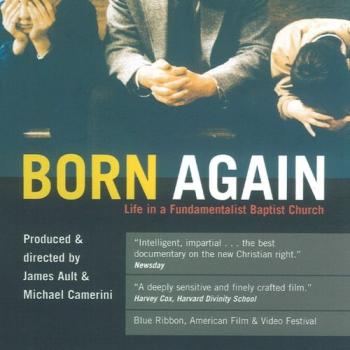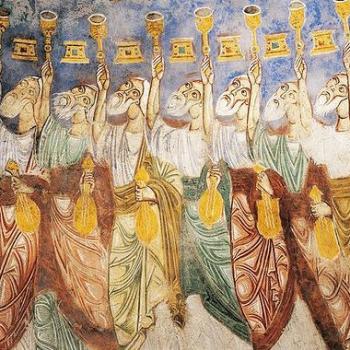Quick review: Zondervan has just published an excellent new book entitled Four Views on the Spectrum of Evangelicalism edited by Andy Nasselli and Collin Hansen. The four authors are Kevin Bauder (fundamentalism), Al Mohler (confessional evangelicalism), John Stackhouse (generic evangelicalism) and Roger Olson (postconservative evangelicalism). I hope you will purchase the book and read it; it reveals much about the current state of evangelicalism in America.
Long before the book was written, my editor at Zondervan contacted me about the idea. I gave her some advice and later gave the same advice to the editors. I think the final product is fine, but I think it could be better had they taken my advice.
My advice was to include a chapter by an evangelical proponent of paleo-orthodoxy. Here I use that term to describe theologians such as Thomas Oden (who, I think, coined the term), D. H. Williams and Christopher Hall–all men I highly respect even thought we have our differences of opinion about authority for theology.
Personally, I think their perspective is better called “confessional evangelicalism” than Mohler’s. At least it is different and I think leaving their view of evangelicalism out of the book was a mistake. (However, I admit that it’s possible they asked one or more of these paleo-orthodox theologians to contribute and they declined. So I’m not criticizing the editors or publisher; I’m just saying the book lacks a perspective that I think is a very powerful one among evangelicals today.)
I think Bauder’s view and Mohler’s are too much alike to really represent fundamentally different approaches to defining evangelicalism. I think the same of Stackhouse’s and mine (with apologies to John if he disagrees!). IF you want to fill in the gap, read one of Dan (D. H.) Williams’ books on tradition. Then read my critique of his approach (and Oden’s) in Reformed and Always Reforming. 🙂
Williams, Oden, Hall and company wish to point evangelicals to the ancient Christian consensus as an authority for belief. (I could mention the late Robert Webber as a proponent of this approach as well.) These evangelical theologians think contemporary evangelicalism is doctrinally and liturgically shallow and needs enrichment from the church fathers. For them, this is more than a mere suggestion (as it would be from me). They treat the ancient Christian consensus as THE authoritative lens through which Scripture must be interpreted. For them, we have no right to read Scripture apart from that.
One thing these traditionalists (I use that term in a neutral or positive and not a negative sense) have in common with Mohler is appeal to tradition as authoritative. But the difference is that for Mohler the authoritative tradition is a received evangelical tradition stemming mainly from the Reformation. The paleo-orthodox theologians reach further back to the church fathers and like to argue that the mainline Protestant (read “magisterial”) reformers did not fundamentally disagree with the church fathers and even relied heavily on them (especially Augustine).
Now, both Mohler and company and the paleo-orthodox theologians seem to me to agree that the constructive task of theology is finished. All that remains is to express the tradition in ways that make it relevant to contemporary culture without in any way accommodating it to contemporary culture. I argue that in matters of theological controversy among evangelicals tradition gets a vote but never a veto. I think they give it a veto.
However, there is a richness and depth to Oden’s, Williams’, Hall’s and Webber’s approach to evangelical theology that I find missing in Mohler’s. Mohler seems to me to be a simple biblicist who interprets the Bible through the lens of, say, Charles Hodge (and his student Boyce who founded SBTS and wrote its Abstract of Principles). The paleo-orthodox traditionalists, on the other hand, plumb the depths and riches of the ancient church fathers and bring those riches to us today. The only area where I disagree with them is the level of authority they invest in them.
One thing that bothers me about these paleo-orthodox evangelicals is a certain inconsistency that I think I recognize in them. For example, in my reading of Augustine’s theology (e.g., his doctrine of predestination), it departs radically from anything that went before. When did the constructive task of theology end? Some would say with the seventh or eighth ecumenical council. But why? That seems so arbitrary. The magisterial reformers seemed to end it with the Council of Chalcedon (the fourth ecumenical council).
I regard the church fathers as guides rather than guards (e.g., of a chain gang).
Anyway, the book is very good as it is, but I think it would be better with a chapter by one of these paleo-orthodox evangelicals. But then it would be “Five Views” and maybe that’s too many for most people; it might hurt sales of the book. If I were given the opportunity to change it, I would combine Bauder’s and Mohler’s chapters into one and add a chapter by Williams.
















